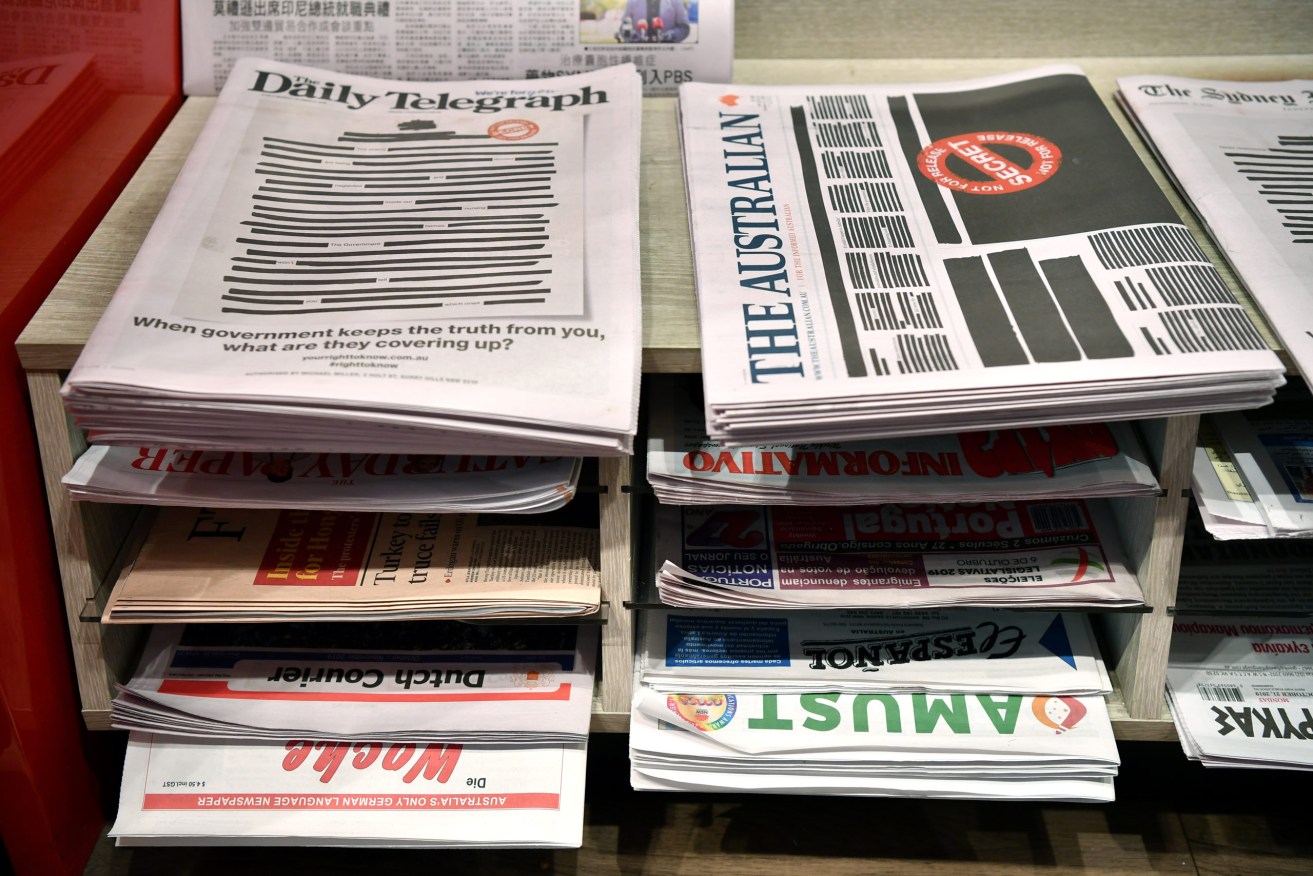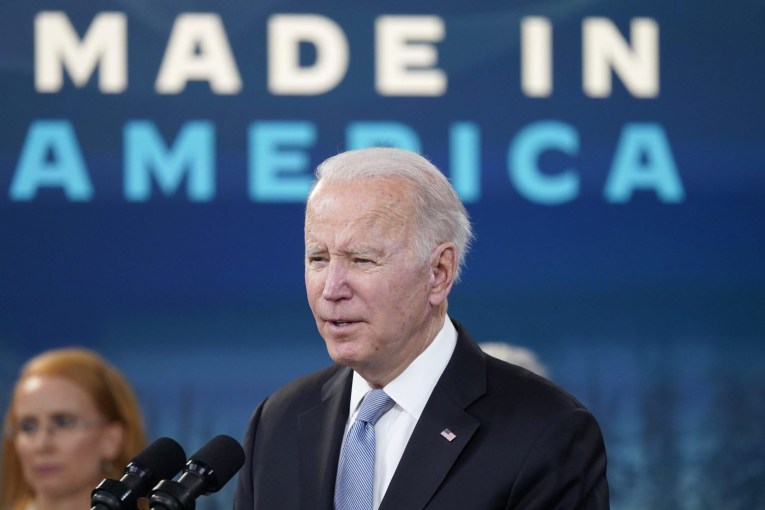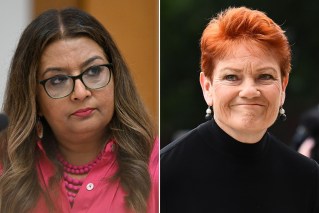Despite ‘Google money’, regional media still in danger, inquiry told
Australian regional media organisations say they need more support, nearly 12 months on from the historic news media bargaining code coming into effect.

The front page of Australian newspapers featuring a 'Your right to know' ad as part of a campaign in Sydney, Monday, October 21, 2019. The front pages of the major newspapers on Monday replicated a heavily redacted government document, alongside an advertising campaign challenging laws that effectively criminalise journalism and whistleblowing (AAP Image/Joel Carrett)
The code was created to help ensure media companies are fairly paid for content that appears on Google and Facebook.
But the head of Australian Community Media – which publishes 140 mastheads, the majority of which are in regional Australia – says the code, while helpful, is not enough.
General manager Tony Kendall said negotiations under the code have so far provided just five per cent of ACM’s revenue.
Without more assistance from the federal government, 20 to 30 per cent of the organisation’s mastheads were under threat, Mr Kendall told an inquiry into Australia’s regional newspapers.
“We’ve negotiated terms with both (Google and Facebook), but regional players negotiated their terms after metro players had done significant deals,” he told the committee on Monday.
“(Metro companies) had taken quite a significant chunk of the money Google and Facebook had been prepared to put into this code.”
Meanwhile, AAP general counsel Emma Cowdroy said the newswire was not included in the code and currently cannot negotiate with tech giants for payment.
Instead AAP has relied on an emergency grant provided as part of the federal government’s Public Interest News Gathering program.
AAP CEO Lisa Davies said permanent funding from the government is needed for the organisation to support rural, regional and local news outlets across the country.
“Our sole mission is to provide as many high quality news stories as we can to as many media customers as we can. This is for the benefit of all Australians,” she told the committee.
On Monday the government announced it would review how the bargaining code is operating.
The review will assess how commercial agreements between digital platforms and news businesses has supported public interest journalism in Australia.
Since February 2021 Google and Facebook have reportedly entered into around 30 commercial agreements between them.
A Google spokesperson said the company has signed dozens of agreements to support 170 small, independent and large Australian media titles across the country.
In October, Google signed an agreement with AAP to add the newswire’s content to its News Showcase.
“Last month, we announced new agreements with more small and independent publishers, including Region Group, Central Coast Newspapers, and Star Observer and are still engaging with many others,” the spokesperson said.
“This is in addition to the financial, technical and training support we’ve provided to the Australian news industry for two decades.”









